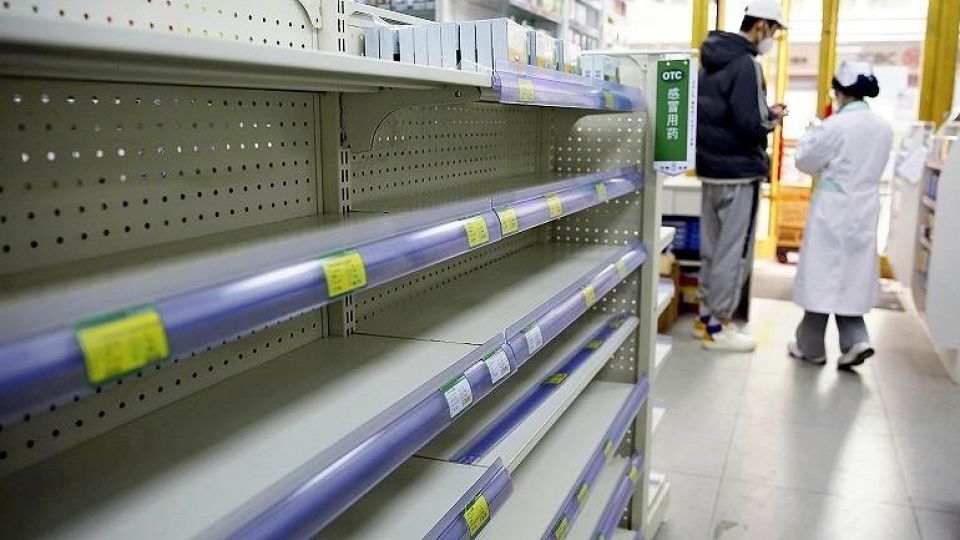December 14, 2022
BEIJING — With the extensive easing of measures to prevent novel coronavirus infection in China, the city of Beijing is experiencing turmoil as residents rush to pharmacies to buy medicine and test kits, and emergency calls increase rapidly.
Chinese President Xi Jinping’s administration has moved to soften the measures in response to public outrage against the country’s strict “zero-COVID” policy to contain outbreaks. But with the policy’s reversal, the administration now must deal with the fears of residents who used to abide by the strict rules.
On Monday, a business district in central Beijing showed few signs of life out on its streets. The only people about were those delivering food or other goods on motorbikes. On the other hand, the city’s pharmacies had long lines out in front of people seeking cold medicines and antigen test kits. These items were often sold out, and some people had to go to several pharmacies, visiting them one by one.
Under the new policy on easing restrictions, which was announced by the Chinese government on Dec. 7, people testing positive for the virus but having mild or no symptoms are able to self-quarantine at home, and those going to commercial and other public facilities are no longer required to prove that they have tested negative on a PCR test. However, residents in Beijing, who have undergone forced testing to be identified as either positive or negative for the virus, are largely dismayed at the changes, and many are inclined to stay home.
At a press conference on Monday, the Beijing city authorities disclosed that the number of emergency calls peaked last Friday at about 30,000, six times more than usual. Apparently, many of the people calling ambulances did so out of fear after testing positive with a self-test kit. One of the city’s senior officials asked the public to avoid calling ambulances and use their own cars if they have no serious symptoms. The authorities are scrambling to calm the turmoil.
According to the Chinese government, the number of new patients on Sunday, four days after the announcement of looser restrictions, stood at about 8,600, roughly 80% less than the latest peak of about 40,000 on Nov. 27. According to the Beijing municipal government, however, the number of people who sought medical treatment for a fever in the capital on Sunday reached about 22,000, 16 times more than a week prior.
According to the Hong Kong newspaper Ming Pao, Hu Xijin, a former editor-in-chief of the Global Times, which is published by the Chinese Communist Party’s official newspaper, said in a social media post last Friday, “The number of patients announced by the central government is on the decline, but this is inconsistent with a rise in the number of people around me testing positive. The reputation of official announcements is being damaged.” The post has since been deleted. It appears that the government’s statistics are not in line with residents’ own experiences.
With the cancellation of large-scale testing, it is possible that many infected people have not been counted. Although the Chinese government has stipulated that those testing positive for a simple test should notify local medical institutions, it appears that there are many cases in which people fail to do so as they want to avoid quarantine and other procedures.

